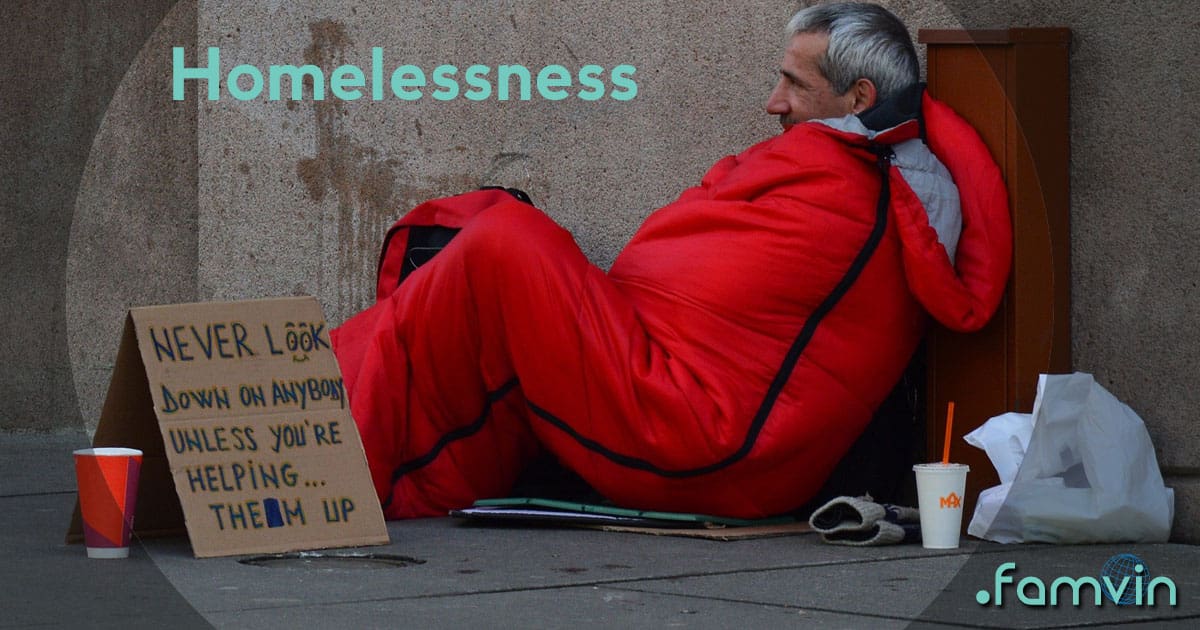Speaking of the Elephant in the Room…
This isn’t the reflection I had planned for this week. It is a reflection about the elephant in the room of our discussions of the Corona crisis (to avoid the use of technical terms like epidemic or pandemic). How the 500,000 homeless in our midst will be affected… and how that affects each of us who are fortunate to have homes.
We deceive ourselves with a shortsighted view of how do I protect myself, my family, my business. Those who work directly with the homeless are raising a cry we all need to listen to. A quick search with the keywords Coronavirus homeless will reveal many who serve as the voice of the homeless.
Followers of St. Vincent and Louise are called to take up the challenge imitate God who “hears the cry of the poor.” Recently we saw Vincent’s great efforts on behalf of the homeless. Whatever challenges you face in your circle let’s listen to the cries of these poor today.
Homeless People Are Gravely Vulnerable to Coronavirus
A leading blog in educating people about the many issues of homelessness, Invisible People, lets us understand the cries of the homeless. The following represents highlight from their post. I strongly recommend that your educate yourself.
It seems the whole world is up in arms in their fight against the virus. But in protecting only ourselves we’ve forgotten the crowning principle of both infectious disease transmission and humanity’s resilience: we are only as strong as our weakest links.
Exploring Our Weakest Link
- Pre-Existing Health Conditions
- Inaccessible Medical Goods and Treatment
- Reduced Space and Brutal Housing Realities
How Weak Links Corrode the Chain
Homeless people may be invisible, but they are not isolated. They interact with dozens of people every day within the community, from other homeless individuals accessing public services to the staff and volunteers that serve them.
All of the people from the community-at-large that homeless people interact with have families and friends that they go home to. The six degrees of separation rule does not apply when it comes to outbreaks at the community level. Three degrees is all it takes for an outbreak to spread from a homeless sub-population to a housed general-population under circumstances such as these.
By virtue of not having a private dwelling space, their existence is restricted to public space. Soup kitchens, churches, community centers libraries, parks, and resources are where individuals connect with the general population. And with the exception of frontline healthcare staff, many of these community organizations are not supplied with equipment nor intel to prevent and manage an outbreak— although there are some excellent resources that have adapted public health strategies to the shelter context that can aid frontline workers.
Reframing COVID-19: Opportunity to Reinforce the Weak Links
A former street nurse named Barb Craig once said: if the first person with the SARS infection in Canada had walked into a downtown Toronto hospital instead of a suburb, the infection would have had a different path and it would have been catastrophic for the homeless population.
I believe it would be catastrophic for the general population, too.
Homeless people are like the seams of a quilt; they may not be explicitly visible, but they are intently woven into the fabric of our society. Outbreaks like coronavirus jostle the fabric of our society, testing the robustness of the social safety net we’ve stitched together.
There are holes in the fabric of our society. There are weak links on our chain.
For a long time, we have neglected to reinforce these weakening links; we’ve turned our backs on the failing social structures that lead people to fall through the cracks.
In the spaces between those links lie the invisible people. Our negligence in protecting them may, in the end, be our greatest downfall. COVID-19 is deadly— but our ignorance kills.
Let’s use the COVID-19 outbreak as an opportunity to reset our mental circuitry. Remind ourselves of a lesson that homeless people and their allies have been shouting for a long time— that humanity is stronger when we reinforce our weakest links.
Thank you again to the folks at Invisible People for drawing our attention to his.







0 Comments